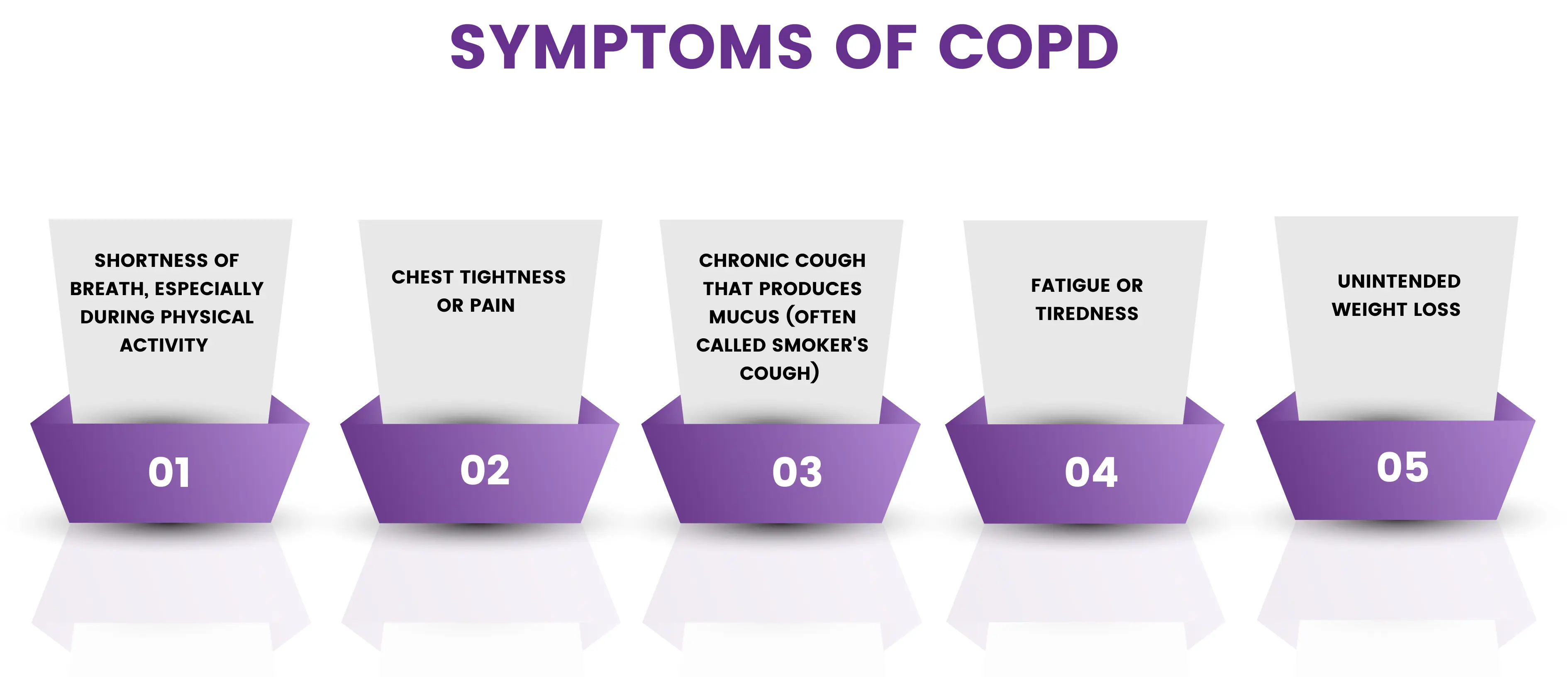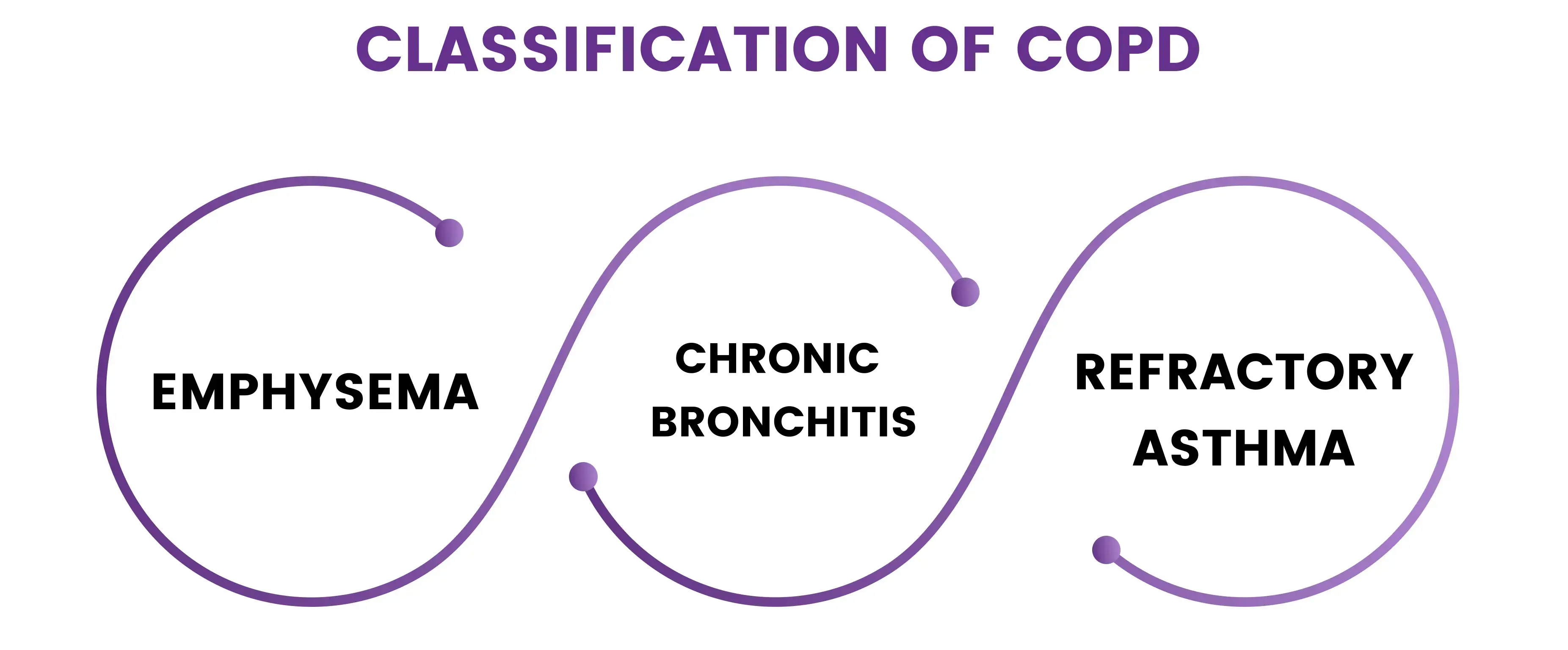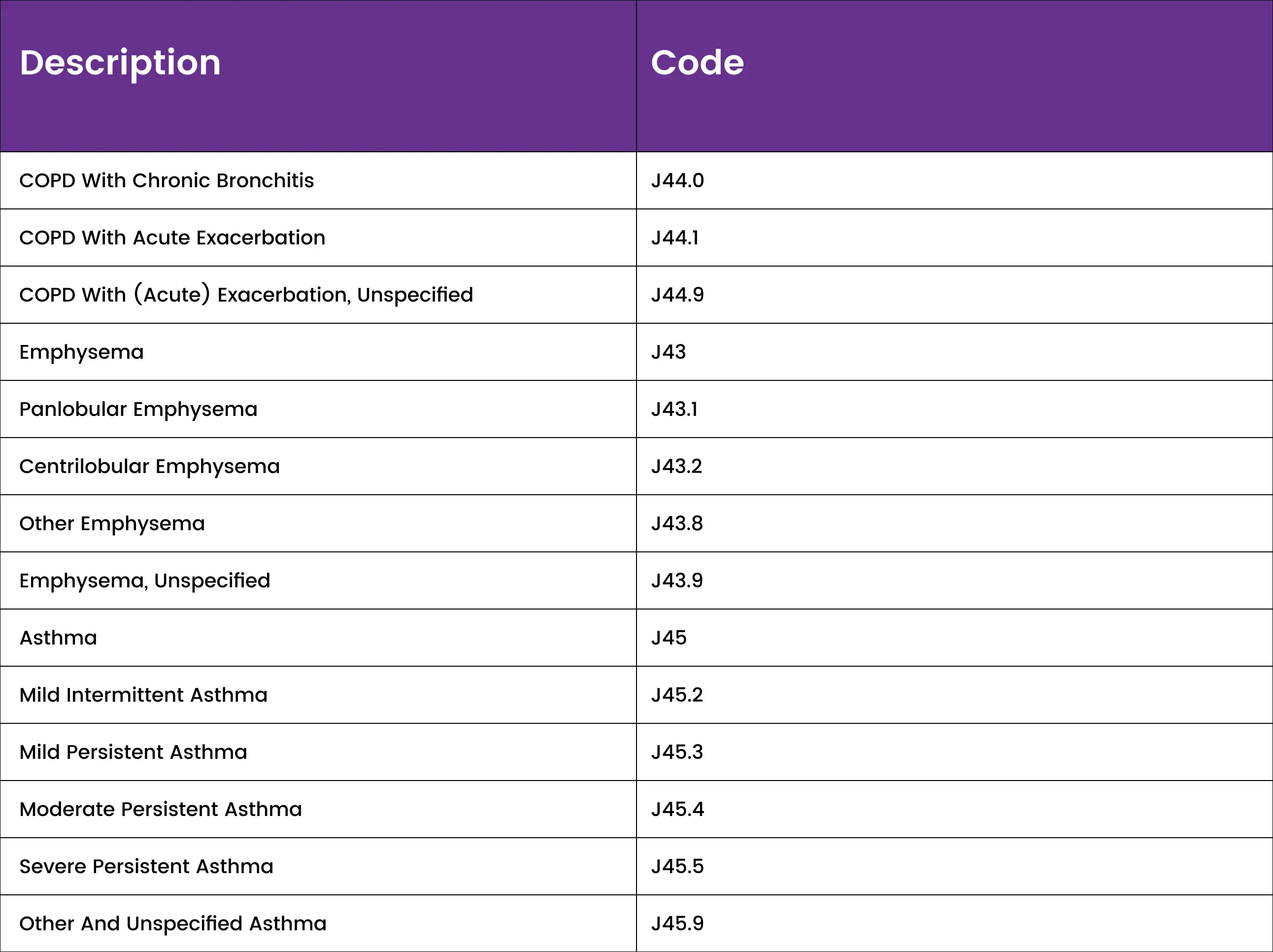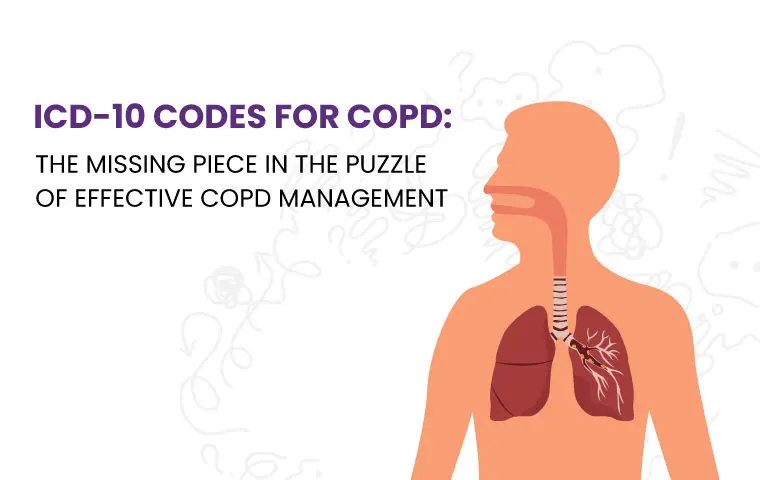Discovering a patient with Chronic Obstructive Pulmonary Disease (COPD) during a routine check-up can be challenging for healthcare providers when it comes to finding the correct copd icd 10. As a healthcare provider, tackling this commonly discussed disease requires not only medical expertise, but also the ability to navigate complex coding systems.
It's time to talk about a topic that's the ICD 10 code for copd. I know, I know, it's not exactly the most riveting subject, but stick with me here. Understanding the right copd icd 10 is like having the key to a secret code that unlocks the door to proper diagnosis and treatment for this disease.
Correctly identifying the appropriate copd icd 10 is crucial for healthcare providers in order to ensure proper diagnosis, treatment and billing. Thus, it is imperative for healthcare providers to possess knowledge and expertise in the complex and ever-changing world of COPD coding, to effectively manage this widely prevalent disease.
Breathe Better, Live Better: An Introduction to COPD
COPD stands for Chronic Obstructive Pulmonary Disease. It is a progressive lung disease that obstructs airflow and makes breathing difficult. This condition usually develops over time and is primarily caused by smoking, although exposure to air pollution, chemicals, and genetic factors can also contribute to its development.
COPD is a serious and debilitating condition that affects millions of people worldwide. It can cause a range of symptoms, including coughing, wheezing, shortness of breath, chest tightness, and fatigue. These symptoms can greatly reduce a person's quality of life and make everyday activities, such as walking or climbing stairs, challenging.
If left untreated, COPD can lead to serious complications, such as respiratory failure, heart problems, and even death. Therefore, it is important to seek medical attention if you experience any symptoms of COPD, especially if you have a history of smoking or exposure to environmental pollutants.
Recognizing Symptoms of COPD
Chronic Obstructive Pulmonary Disease (COPD) is a chronic lung disease that makes it difficult to breathe. Some common symptoms of COPD include:

- Shortness of breath, especially during physical activity
- Wheezing or a whistling sound when you breathe
- Chest tightness or pain
- Chronic cough that produces mucus (often called smoker's cough)
- Fatigue or tiredness
- Unintended weight loss
It's important to note that these symptoms often develop slowly over time, so they may not be immediately noticeable. If you or a loved one are experiencing any of these symptoms, it's important to see a healthcare professional for an evaluation and proper diagnosis. Early detection and treatment of COPD can help improve quality of life and slow the progression of the disease.
Classification of COPD
COPD (Chronic Obstructive Pulmonary Disease) is an umbrella term that encompasses three different respiratory conditions:

- Emphysema
- Chronic bronchitis
- Refractory asthma
While they have different characteristics and causes, they share the common feature of causing obstructed airflow from the lungs, leading to breathing difficulties. Therefore, they are classified together under the COPD umbrella for clinical and coding purposes.
What is the right COPD ICD 10?
According to AAPC and the 10th edition of ICD 10 coding system, the billable copd icd 10 code is J44.9
ICD-10 guidelines for COPD
he International Classification of Diseases, Tenth Revision (ICD-10) provides specific guidelines for coding COPD. The guidelines for COPD coding in ICD-10 are as follows:
- Use a combination code when documenting COPD with chronic bronchitis, emphysema, or asthma. For example, code J44.0 is used for COPD with chronic bronchitis.
- Assign a separate code for acute exacerbations of COPD, using codes from category J44.1.
- If the patient has both asthma and COPD, report a separate code for each condition.
- Use additional codes to document any comorbid conditions or complications, such as hypertension, heart failure, or pneumonia.
- Document the severity of the COPD using codes from category J44.9.
- Report the appropriate external cause code for COPD if it is caused by exposure to tobacco smoke, environmental pollutants, or other external factors.
It is important to follow the specific ICD-10 guidelines when coding for COPD to ensure accurate and appropriate reimbursement for medical services provided to patients with COPD.
Impact of External Factors
External factors can have an impact on the coding of COPD. For example, if a patient has COPD caused by exposure to tobacco smoke, the appropriate external cause code should be reported in addition to the COPD code. Similarly, if a patient has COPD caused by exposure to other environmental pollutants such as dust, chemicals or fumes, the appropriate external cause code should be reported.
Reporting the external cause code for COPD caused by tobacco smoke or environmental pollutants is important because it provides additional information about the cause of the condition, which can be useful for research and public health purposes. Additionally, reporting the external cause code may be required for some insurance or reimbursement purposes.
Different ICD-10 for COPD

How We Find the Accurate ICD 10 Codes?
Our certified medical coders have reviewed the latest information generated by the World Health Organization (WHO) regarding the 10th revision of the International Classification of Diseases (ICD) system. The codes comply with the regulations set forth by the Health Insurance Portability and Accountability Act (HIPAA).
Final Words
In conclusion, understanding and using the accurate copd icd 10 is crucial for accurate diagnosis, treatment, and billing. As healthcare providers, it is our responsibility to possess the necessary knowledge and expertise to effectively manage this debilitating disease.
By recognizing symptoms, classifying COPD, and following ICD-10 guidelines, we can provide better care for our patients and improve their quality of life. So let's breathe better and live better by staying informed and up-to-date on the latest developments in COPD coding.
You can find a vast array of resources regarding the ICD coding systems, specifically tailored to various medical procedures enabling you to navigate the complex landscape of medical coding and reimbursement with confidence and proficiency.
ABOUT AUTHOR

Niel Wagner
As a blog writer with years of experience in the healthcare industry, I have got what it takes to write well researched content that adds value for the audience. I am a curious individual by nature, driven by passion and I translate that into my writings. I aspire to be among the leading content writers in the world.
